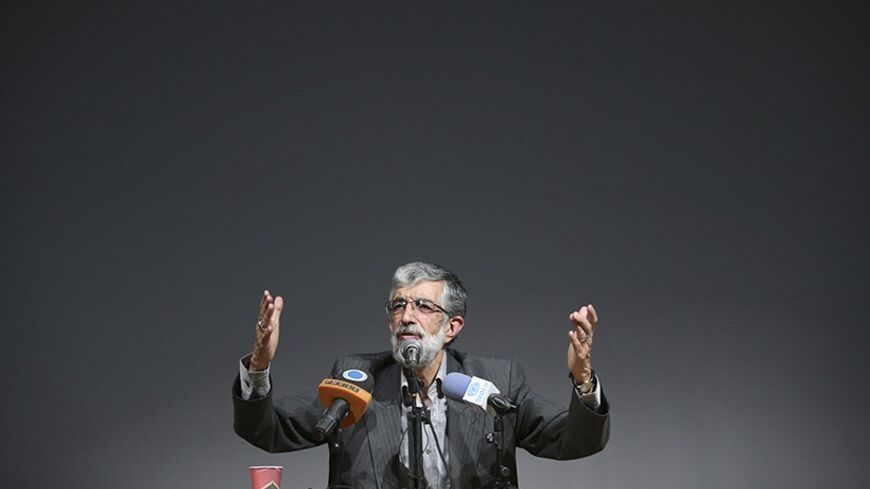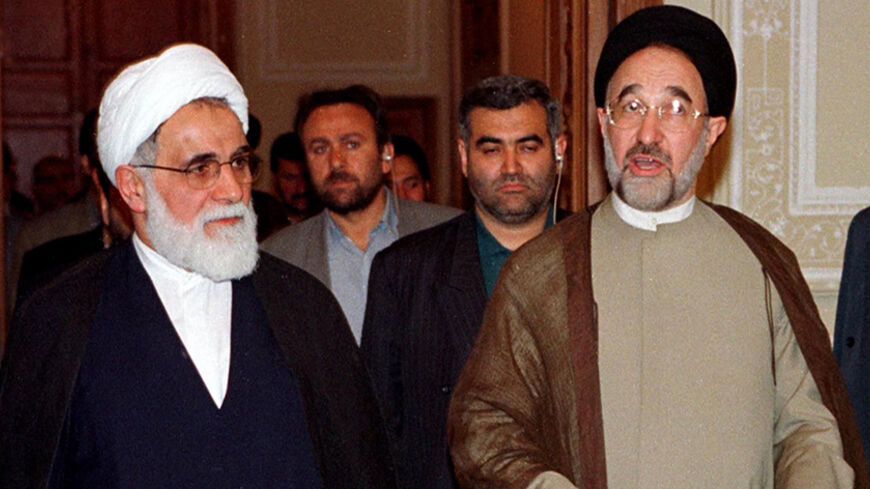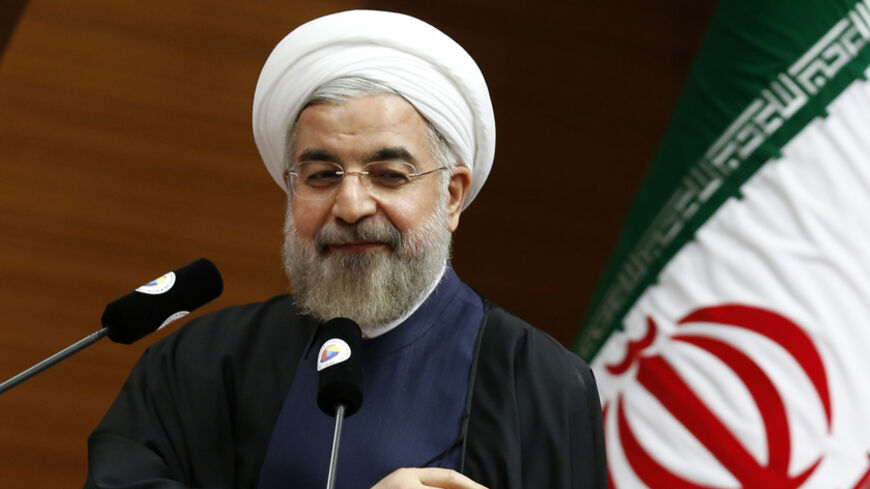![LEBANON Iranian parliamentary speaker Ali Akbar Nateq Nouri (C) and his Lebanese counterpart Nbih Berri (L) review the presidential guard at Beirut's international airport February 5. Nouri is visiting Lebanon to discuss bilateral relations. [Tehran supports the Islamic Hizbollah (party of God) and its militias in their bid to oust Israel from the occupation zone in south Lebanon]. - RTXIKOL](/sites/default/files/styles/article_hero_medium/public/almpics/2014/06/RTXIKOL.jpg/RTXIKOL.jpg?h=f7822858&itok=eS7ffwun)
'Bad veiling' a protest against government, says Iran cleric
Subscribe for less than $9/month to access this story and all Al-Monitor reporting.
OR
Create an account for a 7-day trial to access this article and all of AL-Monitor.
By entering your email, you agree to receive ALM's daily newsletter and occasional marketing messages.
















